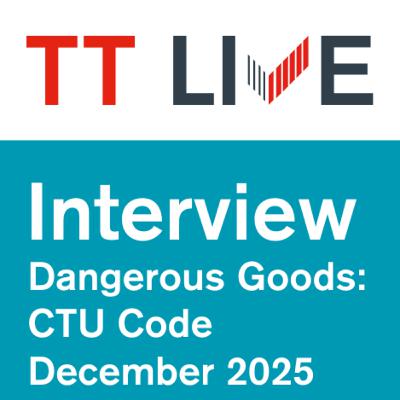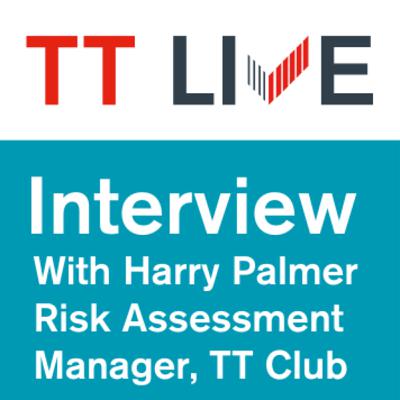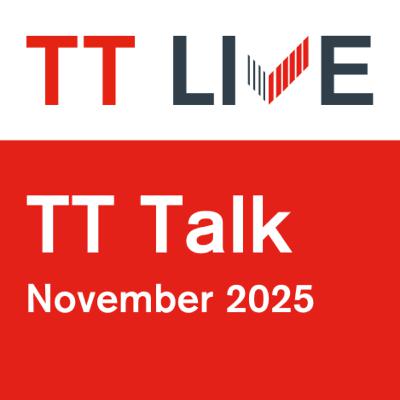Discover TT Live
TT Live

210 Episodes
Reverse
In the final episode of the series, Mike Yarwood, TT's Managing Director Loss Prevention, talks once again to David Thompson of Signum Services.
As cargo is widely considered to be most at risk when it is at rest, the key topic for discussion this week is secure parking for trucks. Mike and David discuss the barriers to adoption for both drivers and truck stop providers across the globe in the fight against cargo crime.
In this week's episode, Mike Yarwood, Managing Director Loss Prevention, talks to David Fairnie of BSI Supply Chain Services and Solutions about the security threat posed by the insider.
While difficult to evidence, there is often suspicion in cargo theft incidents of a degree of insider involvement - sometimes it's just too much of a coincidence that the thieves knew exactly which truck to target and at what time. In this episode we look at how thieves infiltrate a company, who they might target for insider information and why this can be such an effective mode of theft. We also talk through the strategies and procedures that companies should consider to mitigate the security risks posed by the insider.
In this week's episode, Mike Yarwood, Managing Director Loss Prevention, talks to David Thompson of Signum Services about the cargo theft strategies that are most commonly used by thieves.
Strategies discussed include: round the corner theft, Romanian rollover theft, staged incidents and "blue light" crime. This episode will outline these strategies, how they work in practice and how stakeholders in the supply chain can identify the red flags and mitigate the risk of exposure.
In episode three of TT's supply chain security podcast, Mike Yarwood talks again to David Thompson about depot security and how to mitigate the risk of theft.
Depots are a critical node in supply chains all over the world. Such locations might function as an operating centre for trucks, trailers and containers, a temporary storage facility as well as a secure area to park vehicles. For those with intentions of stealing cargo, transport depots provide an excellent one stop shop opportunity of an accumulation of valuable assets.
In this weeks episode, Mike Yarwood, TT's Managing Director Loss Prevention, and David Thompson of Signum Services, drill down into the subject of fraud and how individuals and organised criminal gangs pose as legitimate companies to access and steal cargo. After all, fraud knows no geographical boundaries and is deployed by criminals the world over.
This is the first episode in a series of six focused on supply chain security, in particular cargo theft and related crimes. In this interview series we will consider a range of risks including fraud, depot security, common theft strategies and the threat posed by the insider.
In this first session, Mike is joined by David Thompson, Signum Services (the in-house investigative arm of Thomas Miller), to provide a general overview of supply chain security and why it remains a topic of focus for TT Club and their Members. My colleague David Thompson, from Signum Services, the in-house investigative arm of Thomas Miller joins me for the discussion.
This week, Mike Yarwood, Managing Director Loss Prevention, talks with Geraldine Savin, Senior Claims Executive for the TT Club about the importance of incorporating standard terms and conditions (STCs).
In an industry fraught with potential risks, disputes and claims are perhaps inevitable. The exposure to claims can be minimised, however, by maintaining robust management controls - such as STCs. A business' STCs are often its primary risk management tool, used for setting out the terms under which they interacts with their customers. As we explore in this podcast however, the ability to rely on the provisions of STCs is not a given.
This week, Mike Yarwood, Managing Director Loss Prevention, talks with Kate Andrews, Underwriter for the TT Club about contract review. TT are regularly involved in contract reviews for our Members, while in our capacity as insurers, we are unable to provide legal advice to our Members, we are able to identify concerns and certain clauses that we can advise our Members to either challenge with their customer, seek legal advice on or highlight potential financial risks where insurance cover might not respond to the full extent of the risk. This episode will look at examples of how this all works in practice.
This week, Mike Yarwood, Managing Director Loss Prevention, talks with Andrea Gentile, Senior Claims Executive for the TT Club around the topic of due diligence. Effectively a risk management tool, due diligence can help businesses mitigate the risks they face every day. As we continue to see the globalisation of trade, new opportunities are found more often than not in other parts of the world making thorough due diligence paramount in verifying legitimate third-party business.
This week, Mike Yarwood, Managing Director Loss Prevention, talks with Julien Horn, Senior Underwriter, about the risks of conducting business with unfamiliar jurisdictions. Opportunities in emerging markets can seem attractive, especially when the global economy is sluggish, however these opportunities are not without risk and thorough due diligence should be conducted before making any contractual commitments.
Mike Yarwood, Managing Director Loss Prevention is joined by Andrew Watson-Steward, Cargo Underwriter at TT Club, to discuss the differences between liability insurance and cargo insurance.
Understanding the differences between liability and cargo insurance is crucial when it come to ensuring there are no gaps in cover and no avoidable losses.
Mike Yarwood, Managing Director Loss Prevention is joined by Manos Karanikolas, Senior Claims Executive, to discuss the risks and challenges surrounding uncollected or abandoned cargo.
Uncollected cargo is a perennial challenge for freight forwarders and NVOCC operators. The issue can result in considerable costs on container demurrage, detention, storage and disposal costs. Aside from the purely monetary risks, incidents of uncollected cargo demand a significant management resource to resolve and have the potential to affect commercial relationships.
Avoiding uncollected cargo incidents can be challenging, however, management controls and mitigation strategies can assist in reducing the frequency of incidents. Early identification of the risk and being empowered to mitigate the consequences will reduce exposures. All incidents are complex and will incur costs, prevention is therefore better than managing the incident effectively once it has happened. Crucial to prevention is maintaining management procedures to identify shipments, which present a heightened risk and taking evasive action to protect your business...
Proper packing is critical in preventing cargo from slipping or tipping during transit as forces vary across road, rail, and maritime environments. Poor packing can lead to severe incidents, including cargo damage and ship instability, especially with modern challenges like heavier loads, larger ships, and extreme weather.In this episode, Josh speaks with Bill Brassington, an independent safety and security consultant with 20 years in the container industry and a key contributor to the CTU Code -a global code of practice for packing cargo transport units or CTUs. Bill explains the evolution of the Code from early guidelines into a formal code in 2014, giving it greater legal standing and enabling governments to adopt regulations.
Ports face costly risks from abandoned or uninsured ships. If a ship sinks and the owner or insurance cannot cover costs, ports must manage the wreck to prevent pollution, clear channels, and ensure business continuity. Ports should review procedures for arriving ships and their insurance.
Warehouses storing bulk cargo – such as grain, coal, fertilizer, biomass and powders – face a unique combination of fire risks.Robust strategies for risk mitigation and operational resilience are essential.
The IMDG Code (42-24) becomes mandatory on 1 January 2026. TT Club has updated resources and released a series of TT Briefs on hazardous cargoes, emphasising compliance to prevent human, environmental, and financial losses.
Josh Finch chats to Harry Palmer, Risk Assessment Manager and part of TT Club's Loss Prevention team, about his career, from designing and overseeing the construction of ports all over the globe - and the trials and tribulations - to his current role disseminating years of learned knowledge to our Members to keep their operations as safe and efficient as possible.
As trade regimes evolve, small-to-medium enterprises – the lifeblood of international trade – are struggling to absorb the financial shocks. For freight forwarders, the fallout is potentially ruinous.
Our new quarterly bulletin shares insights and practical guidance on all aspects of port authority risk. It draws on TT Club’s extensive claims experience and industry data to provide a clear view of the risks confronting port authorities worldwide.
In the intricate world of global supply chains, contractual disputes are inevitable, and financial consequences can be severe. For ports and terminals, exposure to such risks can be significantly reduced by using and maintaining a robust set of standard trading conditions (STCs).
























